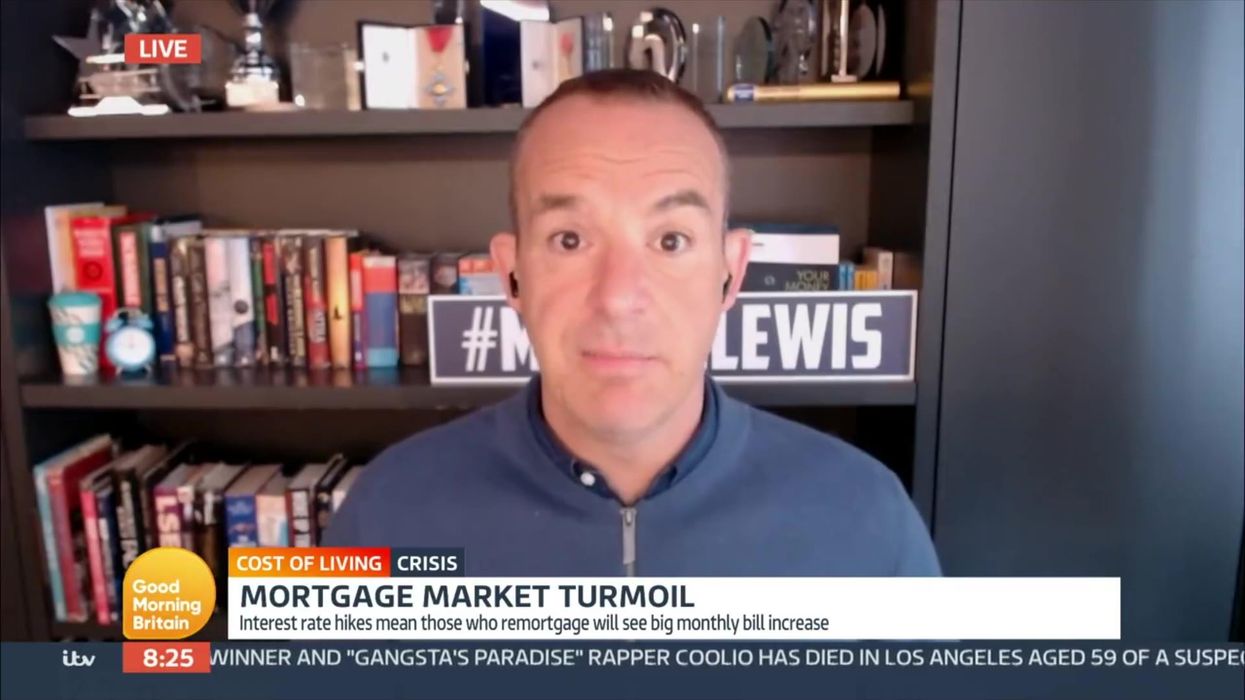Becca Monaghan
Sep 30, 2022
'There is energy bill no cap': Martin Lewis warns amid cost of …
Video
Martin Lewis urged Brits to submit their meter reading this week ahead of the upcoming price cap on October 1.
The Money Saving Expert took to Twitter with the "#MeterReadingWeek" warning, adding: "On Sat most energy bills rise 27%".
In a clip, Lewis explained: "If you pay by direct debit, firms estimate your use and they also estimate when it's used, so you don't want them to assign more of your units to the more expensive period.
"How do you stop that? You submit a meter reading. Take a picture, too, so you have evidence. That way, there's no estimate and there's no discrepancy. Those with working smart or pre-pay meters, you don't need to bother, but you [still] might want to take a picture of where you're at on the day."
Sign up to our free Indy100 weekly newsletter
The money guru has spent the past eight years helping Brits save and reclaim their money. On his website, he shares invaluable guidance – particularly helpful amid the cost of living crisis.
Here is a round-up of Lewis' tips ahead of winter:
Top up before October, if possible
In the Twitter video, Lewis shared a tip that could benefit some people using pre-pay meters.
He acknowledged that while some people may not be able to do this, topping up in September would allow people to "keep that rate in October" ahead of the rising cost.
Lewis added: "If you're on a pre-pay meter with E.ON or Scottish Power they have told me it won't work. But all the rest of the big firms, they've said it is likely".
Challenge your energy film if direct debits have hiked
While Lewis said it's relatively normal for monthly direct debits to rise due to the rising cost of energy prices, he also said to "fight back" for a fair direct debit after some of his MoneySavers witnessed theirs double.
You can find out more on challenging energy direct debits here.
You could qualify for £140 off energy bills
On his site, Lewis urged people to check whether they qualify for the warm home discount, which will be applied by March.
Most pensioners will automatically receive the benefit, providing their energy supplier is part of the scheme.
For full eligibility, click here.
Radiators are cheaper to run than electric heaters
The Energy Saving Trust said the cheapest way to heat your home is through a gas central heating system, "with a full set of thermostatic radiator valves, a room thermostat and a timer."
They added that electric heaters are one of the most expensive forms of heating.
Turn off appliances at the plug when not in use
It may sound like common sense, but it's incredibly easy to forget.
Devices such as laptops and TVs can use something called "vampire power" as they still draw small amounts of power, even when not in use.
Fixing is not the right thing to do right now
On his site, Lewis said: "The energy market is in crisis, wholesale prices have exploded. Firms are being forced to sell energy substantially below its cost price, due to the energy price cap on standard variable tariffs. And I'm starting to hear that firms' marketing departments are therefore kicking into gear to try to persuade people to take up other tariffs.
"Expect to get fancy letters extolling the virtues of fixing - tapping into switchers' instincts as if these were normal times, when that was the right thing to do. No surprise, they are desperate to get people off the price cap. Yet as a consumer, fixing now is almost certainly NOT the right thing to do (I can't say 100 per cent without a crystal ball, but it's my very strong suspicion).
"The cheapest fixes cost 30%+ more than the price cap - a huge premium, when you consider the price cap is in itself fixed until April. If you're on it you're essentially locked in at the cheaper price over the high-use winter period. So DO NOTHING, and if you've never switched, you'll be on the price cap. If your fix is coming to an end, or your provider has gone bust, DO NOTHING and you'll automatically be moved to the price cap.
"If you want to see the price differentiation for yourself, do a Cheap Energy Club comparison."
Have your say in our news democracy. Click the upvote icon at the top of the page to help raise this article through the indy100 rankings.
Top 100
The Conversation (0)














